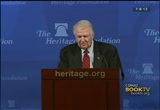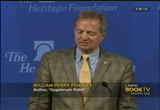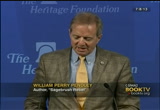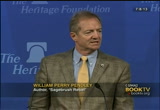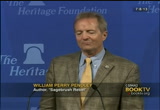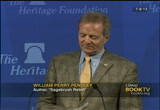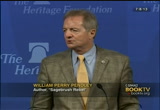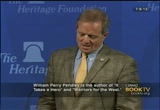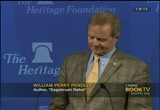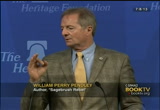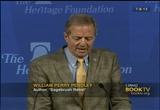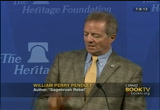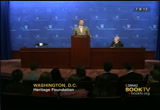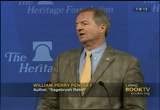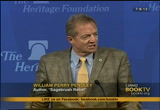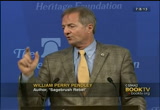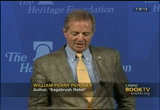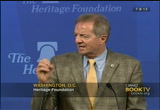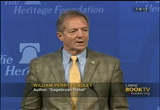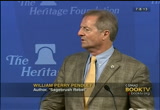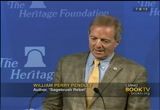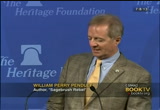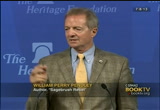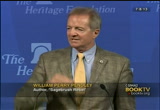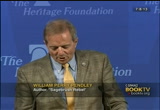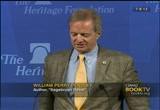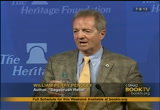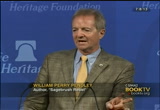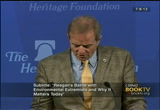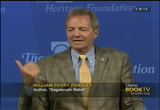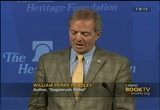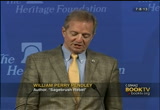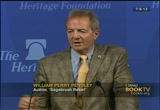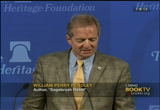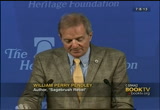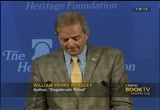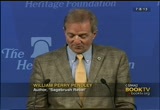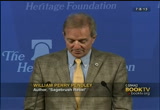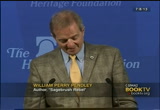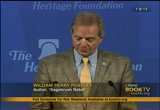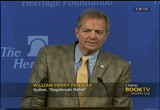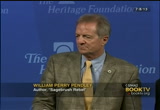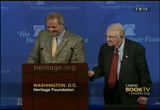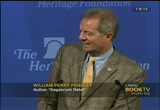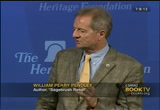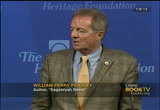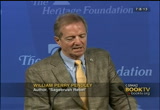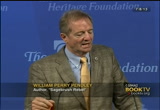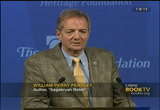tv Book TV CSPAN July 13, 2013 11:45pm-12:46am EDT
11:45 pm
possible effort for every possible child so they can helpless fix the mess that we left them. we have left him a huge problem. we have not fixed it. we don't have enough time ourselves superior giving them a huge burden and asking them to help us to save us and save themselves. so i hope the experts can take he did is hopeful that the united nations and the pentagon is looking at it and asking questions of fourth graders about what could do to make things better. i think we're about done for the evening. thank you for having me. also harcourt's publishing company the film, the documentary "world peace and other 4th-grade achievements" and my
11:46 pm
11:47 pm
rebel". [applause] >> when it came to energy, natural resources and the environment, reagan knew exactly what he wanted to do. of course, he wanted to be governor of california and like the other than western states it is a federally and state the government does own one-third of the nation most of that with the american west california, colorado, half of it was owned by the federal government. said to be governor of california not just when it was sovereign but also as a land owner event in many of the cases bad. he had that experience through the park service and fish and wildlife service and bureau of reclamation he had experience with those agencies and he brought that knowledge with him in the years ahead.
11:48 pm
something about reagin is he had a photographic memory. with the famous reagan biographer points that out in one of the reasons why reagan was the had experienhe hadh an issue experience with an issue brought that with him into the future. the second thing to happen is that after he made a decision and decided not to go into television. in for years was offered the opportunity to appear that they will never get tired of be on the radio so he embarked upon the weekly radio address is. hundreds of thousands into a
11:49 pm
brief break when he ran for president in 1976 killed and going on after he ran for president successfully in 1980. covering the issues he thought was important the issue of foreign affairs, energy, the environment, the problems were tied up with economic problems and energy problems most of the land the federal government loans in the west is in the area of the country that is geologically unite -- you need to provide enormous opportunities for hydrocarbons, oil and gas and minerals. so he knew that was a great opportunity outside a state
11:50 pm
waters reagan knew there was great opportunities there. reagan did not believe the government with a view of the energy future. so as what the government had predicted that the energy futures that the government was wrong decade after decade with regard to the energy future. check out the books you have not read them reid pass a victory where they put together the wonderful reagan speeches many written in his own hand. i had a laundry list of issues that he covered but not in the style of but at the department of the interior with affirmative their culture at the high
11:51 pm
policy level. but then as president he implemented the policies to know exactly what he wanted to do it and move forward and continue to monitor what was going on. i will fade as successful but he continued to do the radio address the two key addresses that i feature in my book one of october 1983 he rode by himself and don't have the handwritten copy
11:52 pm
but it was put up in the quarter to make sure the policies would be implemented jim that within a concluded this is a manned trip to his word to follow through on what he said what reagan wanted to do. and on call by one of the buyout -- biographers. to say there is any other close -- person closer then a successful secretary to
11:53 pm
suggest the region making an attorney general. to pick the three men to do the work he wanted but envisioned the he was governor that he continued to talk about with the radio address that with the speaker and a writer and continued to back each and every one of them. one of the things that is fascinating i hope the book would have been read in it -- written but not until 2000 that saw something to help us understand what reagan's philosophy was and how truly he believed in the issues until the diaries came out in 2004 what was fascinating the second general area the book is
11:54 pm
called "sagebrush rebel" in the subtitle is reagan's battle -- reagan's battle with environmental extremists and why one time he called them the modern day which i thought was cool and then went on to explain what that was. [laughter] they lied about reagan and continued to the three very important respects. first of all, when they said we did not oppose him initially to talk about shortly after is really did not dislike him at first and then to start to do the crazy things. the environmental groups very early.
11:55 pm
publicly at the time september of 198021 groups representing millions of members wit to the carter white house endorsed president carter for reelection and then step down on the lawn and excoriated reagan he just endorsed carter then they attacked reagan it was relentless. what is more interesting to me, one year earlier the press did not know what they said about the white house appearance this is a remarkable change because for the first time in history environmental groups have taken the side in the election. with the environmental groups have done ever since.
11:56 pm
those that travel to denver colorado to take on what they knew was a threat. i google the carter war on the west. there was not much out there and i was very surprised. some say it really started with the passage of the land policy management act of 1976 where to use the blm land across the west changed dramatically. but we will keep it and preserve it forever but that had been packed.
11:57 pm
but what did have the impact is when carter came into office with the secretariat of the interior they decided to implement policies seen as a war on the west farming, ranching, forestry farming, ranching, forestry, the use of water, as state sovereignty, you name it. because democratic governors colorado, utah in fact, there is a book called the in three west if you read it today and i recommended he names these people and sounds like we will be reid warriors of the west or even wyoming. my home state were opposed to winters in jimmy carter were doing.
11:58 pm
quickly he identified himself and then to be ready for the transition he sent a telegram back to new york city. and i hope to have a peaceful solution to the "sagebrush rebel" and reagan's best friend, friend, paul, led the charge to introduce legislation. so they said how to read deal with this? moreover throughout the campaign reagan did he had done in california with his radio address ising continue to do with his campaign to
11:59 pm
[inaudible] on energy and environmental interest how we have to develop our resources in have to work her way basing for the american people. if you ever have any hope dealing with our problems but carter on the other hand, says we cannot grow our way out of this. jimmy carter says back in the 1980's were by the 1990's we will have run out of natural gas. reagan did not think that was right at all and he made it very clear during his campaign. so when the environmentalist say we have no idea what ronald reagan stood for what he believed or we did not oppose him at the time it is total fiction. they opposed him 79, 1980, 81, and they continued to attack him.
12:00 am
the second light that they tell about his administration that he could have had a successful administrative presidency to change the budget, personnel and limited regulations but only if the history of the but the unsuccessful legislative presidency because he was up against the bipartisan consensus with environmental issues.
12:01 am
a couple days ago a story out of california how the condors, which the reagan administration recovered -- the condors swept into a california town and wreaked havoc, tearing shingles off and doing their thing to the great stress of the home owners. >> and ronald reagan wrote about the endangers species act so
12:02 am
there was a tremendous amount of buyers remorse. is this what the environmental statute means? nepa, it was to require that we study a project carefully before we move forward with a major federal action that will significantly affect quality of the human environment but it didn't. >> after the nepa was passed we have not built an oil refinery in this country. wed did not improve the levees in new orleans before katrina hit and in the forest fires and
12:03 am
not one area will be harvested because of nepa. reagan saw all that. and when he came in the was prepared two transition reports, one presented by nixon, ford, environmental pipes, and they said to the president in their document, well, just tinker around the edges with these environmental regulations. don't make big changes, and reagan threw it over the side. only three copies were ever made. and instead, president reagan clung to a document created in this building the mandate for leader shown by the heritage foundation in 1980. chapter by chapter about what a conservative administration ought to do and there was an interior chapter and i confess i played a role in wright that document. that what reagan wanted to do. that's what i want to do and not
12:04 am
only did he like it after reffing it cover to cover but he said to mr. meese, have a copy put in front of every cabinet officer and then told the cabinet, read your chapter, and then implement it. and so we did. so, yes, we had a successful administrative presidency. legal collars -- scholars say that reagan probably had the most successful administrative presidency in the history, even more successful than fdr. simply because of a laser like focus on the issues and a commitment to getting it done. reagan said, every once in a while you got to grab the bureaucracy by the neck and say
12:05 am
stop doing what you're doing, and he did, and we did. that's not the end of it. president reagan had a very successful economic agenda. a lot of economic legislation passed, with the help of a bunch of yellow dog democrats who joined with him, for example, jim santini of nevada who saw the light and stopped being a democrat. but there was other legislative successes that president reagan had in the area of energy, natural resources and the environment. for example, reforms, reclaimation act of 1902. broad, bipartisan consensus what needed to be done with regard to re claimation act and got it done. fraud, graft and corruption in the manner in which -- and incompetence, frankly, the manner in which royalties were collected on federal lands across the west. a commission was appointed. it made recommendations, and
12:06 am
secretary watt moved to congress and said, let's get this adopted and that was quickly enacted in the federal law and president reagan signed it with a lovely signing address. in addition in 1986, notwithstanding the fact that we knew back in the administration of jimmy carter, under cecil ander, there were problems in the way oil and gas leases were issued. problems were not solved. but the reagan administration worked closely through jim watt and bill clark and-worked with the come to ultimately have the federal oil and gas and mineral leasing act amendments of 1986 passed into law. there's numerous others. all in my book. that i set forth, saying the president had a number of legislative victories, for example with regard to protecting the coastal zones, the coastal area, keeping that area from being developed, providing funding through tax
12:07 am
relief through the reclamation of old historic structures and indian country, the indian gaming law changed. there were some defeats. admittedly. but it wasn't because reagan was out of step. with whatever environmental consensus there was in congress. it was because congress was schizophrenic. some members of congress thought we ought to have all wilderness all the time and never explore for oil and gas. some members thought we should be drilling for oil and gas even in the wilderness, looking for critical mineral in the wilderness and if we discover some mineral career to our survival that is in a wilderness, stop making it a wilderness and get the ore out of the background. that was the schizophrenic nature of congress and that
12:08 am
split continue throughout the reagan administration and i think president reagan had great success, not withstanding that condition. the third area environmentalists lie about is reagan's legacy. it's no surprise they don't like whey what hi did with regard to oil and gas lease on federal land or what he tide on the outer continental shelf or the fact he issued coal leases or wanted to search for strategic and critical minerals. but they ought to like what he did on wilderness. president reagan sign 39 wilderness bills. he created more wilderness land in the lower 48 than any president in history. before and since him. he brought more land into the federal estate as national parks than any president in history. he created more wildlife refuges and poured more money into wildlife refuges and national
12:09 am
parks than any president in history. the president, through his secretary, put a billion dollars in his first term to bring the national parks up to code. the national park service acquired land, brought it out of private hands, into federal ownership but not taking care of the lan. it was badly out of code and not safe. not safe for its visitors. president reagan called for cleaning up chesapeake bay. and i had to laugh last weekend. i was in south carolina with my marine son, and we were celebrating the fourth of july, and of course the fourth of july, the statue of liberty re-opened for the first time since hurricane sandy hit. but it was ronald reagan who restored the statue of liberty and ellis island in time for the centennial celebration back in 1986. he put together an unprecedented
12:10 am
public-private partnership headed by lee iacocca that raced $300 million of private fund and eventually raised 600 million in private funds to restore the statue of lisch and yet environmentalists to this day to this day, complain about reagan. and how bad he was on environmental issues and, frankly, it's a lie. let's talk about the reagan legacy, what it means today. that's the other part of my book. when i met with margie ross a year ago last april, april of 2012, margie is the president of regnery and i have been fortunate to publish a couple books with them, and i said i want to talk about what reagan did on environmental, natural resources and energy issues and i want to talk about why it's
12:11 am
important today. and she was all for that, especially the part about today. so, here it is today. president reagan recognized that we have tremendous resources in this country. we certainly are a blessed country. given the natural resources that we have. beautiful, spacious skies and all that great stuff. and we also have remarkable natural resources as we discovered over the past several years. the president reagan understand oil and gas issues. he recognized three unique truths about oil and gas. number one, spoil -- oil and gas industry is not monopoly. number two, it's the independent oil and gas operators who make the major discoveries and we're going to find new energy resources by unconventional technology. sound familiar? well, of course, reagan would not have been surprised by what is going on today with regard to
12:12 am
hydraulic fracturing. would not have surprises him in the least. this has been going on for 60 years but we have only been hearing about it for 60 minutes because now it's an environment crisis or something. but it's a remarkable change and it also started, as i set forth in chapter one of my book, on oil and gas, all started in -- started out west in wyoming, a little town child pinedale in an area where using how hi drawlic fracture only blm land, a guy who could afford the cheap natural gas leases being told, discovered what is called jonah field. the biggest natural gas discovery in the history of the united states, and he did it using hydraulic fracturing, and the success that we had there on federal land then spread across the country. the barnett field, the the utica, the niagra. if you have been following this
12:13 am
issue, that's all private and state land. none of this is on federal land. and that this great tragedy. this stuff was originally discovered on federal lands and we said, great, we'll do more of that on federal land. in fact we have done less, and the obama administration right now is on the verge of issuing regulations that will cost u.s. billions of dollars to comply with unnecessary regulations when it comes to hydraulic fracturing. you say who is regulating high drawlic fracturing? the guys that always regulate for the past of 60 years, state government, and they've done a darn good job. they don't need the department of interior to tell them how to do it. and that was a remarkable success story. you've heard also, the field in north dakota, that's oil. the texas field, that also is
12:14 am
oil. but you take those two fields, the balkan and the texas field, and the texas field has gone from five years ago it was at 500-barrels a day and is now up to 5,000-barrels a day. and you take the north dakota field and the texas field and you add them together and you add a billion and that's is less than the monterrey field in california near bakersfield. that is federal land, and right now it's under a federal judge's moratorium because of a lawsuit by environmental groups. sow county see the kind of future we 1/2 a post-reagan era. a couple years a man named haroldham, almost sing lally responsible for the success of north dakota, who heads up an outfit called continental resources, had an audience with the president of the united states. and he knew that his time would by limited and said i wanted to make it count. so he said i wanted to tell the president that remarkable
12:15 am
success of the oil patch over the recent years and the incredible transformation technologically in the oil patch, and that's what haroldham told obama. the president brushed him aside and said select chu says we'll have a battery to put in the cars and we won't need your spoil gas anymore. andham emerged from the meeting and said this to "the wall street journal." >> if you really believe that nonsense why would queue do away with the economic miracle, the energy miracle, that is the oil and gas industry today? good question. president reagan did something very unique with regard to the outer continental shelf. when you look at my book and you see the chart in there, where i compare the amount of land made available under president reagan and the land available under
12:16 am
president obama, and when you look at the chart, shows the number of acreage released by -- released for sale under president carter, with the amount of acreage offered up by president reagan, it will blow your mind. we did something very unique. here was the approach. one of reagan's philosophies, core principles, on government resources, was, we will not act as a monopolist. she price is passed on to the consumer. the philosophy in the past had been re wi have 40,000-acres in the western -- gulf of mexico, available for oil and gas leasing and then the department would go to the industry and say, where do you want to drill? and industry, we would like this tract here, cave.
12:17 am
who wants that tract? we'll lease that. this tract sneer how many want that? three or four, okay, four or five, good, good, good competitionment how many want this track over sneer one company. we're not going lease that. why won't you lease that? because only one company wants it. it won't drive up the bonus bid like we want. and that's what they did. the handful of tracts released, and some discoveries were made. it was in the hand of bureaucracies who had no experience, no 'expertise and no skin in the game, and we changed all that president reagan's philosophy was 40 million acres available for leasing. environmentalists, had a fit. oh, my gosh, the entire outer continental shelf available for oil and gas leasing. well, yaw, available, but what at the end of the day will be leased? remains to be seen. what the industry wants to do. and that event as i lay out in my book drove the industry into
12:18 am
the deep waters. part of it was the price issue over gas. part of it was what happened, the collapse of our hopes in alaska, but that technological enforcing of it's all available, wherever you think there's a potential for you to develop energy and mineral go out and get it, and that's what they did, and we had huge successes. remarkable discusses. and even a post bp blowout success. that has been -- that i lay out in my book where we continue to drill in the deep water. and remarkable, remarkable successes. where are we today? well, as i show by chart chart in my book, reagan had the entire outer continental shelf available, obama has it closed and in the gulf where we can drill on a quasi-moratorium despites rulings of federal judges. regarding coal, president jimmy
12:19 am
carter, you may remember, said i want to develop a billion tons of coal. and then he set about to making that impossible. he developed basically a system for leasing call in the american west, and he imposed regulations on states that made it impossible for states to regulate the reclamation of their coal. i know i'm going little inside baseball but there was a law call the service mining control reclamation act passed by congress do say we want to make sure that when coal is mined in america, the land is fully restored, and what the states would promise, the senators were promised when the legislation was going through the congress was, states will run their own program. now, for both of you who knew the clean water act, the clean air act, this is not like that. those acts allow for dual control. federal and state.
12:20 am
but the seniors mining control and reclamation act, the state runs its or the feds run it, and if the feds are running it, the states are out of it. and president carter accommodated 500 pages of regulations that made it impossible for states to run their own programs. they said we're not going to do it. and we came in, the reagan administration came in and said, we're going to do what congress told us to do. we're going to turn the programs over to the states and we did. and we're going to do what the american people need. we're going to lease coal, and we lease coal. when you look today and you see the results of the coal leasing program, you'll see that today the top coil producer in the country and it's ahead of the next six. in fact if you add the next six together, wyoming produces more coal than all of them combined and what happened on state and local government? the state government is now running their own programs.
12:21 am
especially here in the east, developing and controlling their own reclamation program, and that's leads to great production. unfortunately we have had a war on coal since president obama was inaugurated. he told a group of people in san francisco, the same folk he told what we cling to in pennsylvania, guns and god, but he told them, you know, you can build a coal fired power plant if you want, after i'm president, but it will bankrupt, and the epa is out of control moving forward and two days ago they announced the war on control old and they were clear, it is a war on coal. strategic and critical minerals. you rarely hear about this topic but it was hot topic for president reagan. nixon and ford didn't want to talk about immigrant. carter wanted to talk a little bit but didn't want to do anything about it. and president reagan was the
12:22 am
first president to announce a national minerals policy, and the national minerals policy said, understand. there are minerals out there we got to have. and cobalt was important. most of our minerals cam from foreign countries. we have a wealth of those in this country and we need to develop them. president reagan vetoed two wilderness bills, one he vetoed because it had too much mineral land locked up in it and it would prevent the development of strategic and critical minerals, and because of his concern about minerals, president reagan rejected the law of the sea treaty because there are great mineral resourceses in the outer continental shelf. i understand that president obama has a strategic and critical minerals task force in the white house. we'll see. we'll see what happens with that. our issue today is not so much
12:23 am
cobalt. cobalt is still critically important for green technology with regard to automobiles but the issue today is with regard to the rare earth elements. and they are all in china, along with our debt. our $16 trillion debt. that where our debt and is that's where the rare earths are. we have rare earth elements in california, great deposits there, great deposit in wyoming, who knows if we'll be able to develop that. finally, i want to mention that president did issue the exclusive economics zone proclamation. president reagan was great with regard to his belief in the need for us to protect our outer continental shelf. president trumanan issued a proclamation in 1952 and then president reagan went even further with this exclusive economic zone proclamation in 1983. i don't think it's been seen --
12:24 am
has been out of the vault since i asked for a copy, and it's hugely important. congressman issa is proposing legislation to name it of president reagan. i want to read a part of my book to you. there's a lot i'd love to read to you. i'd love to read to you the part where reagan used, i think for their first time ever, his famous phrase, if not us, who if not now when and and it became famous at the second inaugural address when the said that. but the first time her said it is when he told jim wattses to move forward with oil and gas leasing, and said simply to him, if not, who if not now, when? there's a section in here where i show, i think, incredibly how the mainstream media is willing to lie and disstart -- distort
12:25 am
the truth in order to achieve an objective and they lied about the reagan team and the reagan record, and i'd love to read that to you. as a former marine i'd like to read the part how the reagan administration made sure there was an american flag, heroic statue and an inspiring inscription city vietnam vert memorial but i want to part that shows the kind of man that reagan truly was. what he believed. and the way he treated people. and the tremendous gulf that separated him from the other side. environment gentlelady germannists were rehelpless in the attacks but one man in particular cared the attack to an obsess skiff degree, the legendary photographer, an sell adam, gap writing a letter a day
12:26 am
to newspapers and congressmen decrying president reagan's disastrous environmentam patrol sis sis and his interior secretary, james watts, he warned us of a catastrophe, tragedy, and the pearl harbor of our american earth. then in may of 1983, adam declared baldly, i hate reagan. and that got the president's attention. he told the top aide, i want to talk to this man, adams to final out why he dislikes me so much. meanwhile, reagan decided it was time to clear the air and straighten out the record on where my administration stands on environmental and natural resource management issues, which was how he gap his weekly radio address in june of 1983, andres the personal -- an address he personally researched and wrote out by hand. remark on the new leadership of the environmental protection agent president reagan transitioned but that is enough about me. and then continued the typical
12:27 am
reagan address, over a period of several minutes when he talked about the shape the parks were in, the issue of wilderness lands and how the lands were designated and about the great record of his administration. he closed this way: thanks to these efforts our country remains america the beautiful. indeed it's growing more health. >> and more beautiful each year. i hope that this helps set the record straight because it's one we can all be proud of. until next week, thanks for listening, and god bless you it was classic ronald reagan. putting a set of complexion issues in simple, straightforward language. of course, reagan had facility with the subject matter. he had been involved nice issues since he was governor of california and researched, written, and spoke about that for years. now, after delivering that address, he was ready to meet with adams, which he did a couple weeks latedder in early
12:28 am
july in beverly hills. reagan called adams a great nature photographer, and he wrote about the meeting in his diary. he's expressed heat tried for me because of my supposed stand on the environment. i asked for the meeting. i gave him chapter and verse about where i really stand on the environment, and what our record is, all in all, the meeting seemed pleasant enough. and i thought maybe i'd taken some of the acid out of his each. then i read the story of the meeting as he had given it to the presumes i'm afraid i was talking to ears that refused to hear. sure enough, adams emerged from the meeting up assuaged and assailed reagan personally and attacked his policies and the people appointed to impreempt them. at the end of the story, the "washington post" reported that for all of his intense anger at reagan and watts, adam seemed hard pressed to document
12:29 am
widespread environmental damage from their policies. why was that? why was there such a gulf between the two? from the beginning the conservation movement held human beings at its center. whether the issue was the need for humans to sustain themself by wise use, consive vacation, bounty or the need to set aside permanently an unchanged preservation a portion of god razz great creation for their emotional, physical, and spiritual re storation, the focus was always on music. that focus changed to reagan's great dismay during his lifetime. people were no longer at the center, just part of the -- no greater or worse than any other living thing. not only was mankind on a par with the flower -- flora and the fauna, it was the enemy of creation. all the terrible things that happened and might happen could be laid at the feet of
12:30 am
homosapien ises and only pain lay ahead, even they thought it would be too late for human beings were not only at war with their own planet, their faith in human ingenuity and their belief in technology were infantile. their hope for a bright future was futile. ronald reagan would have none of the gloom and doom. in his 1980 presidential campaign, he depicted the stark contrast between his vision of the future and that of president carter. president reagan adhered to what one social scientist called the human exceptionalism paradigm according to which human technology and ingenuity can coin to im -- continue to improve the human situation. carter, the earth day organizers and environmental groups embraced a enthusiasm he can
12:31 am
localing cal paradigm which posits environment limits to economic growth. it was much more. was a battle between two competing systems of government. between big and powerful new deal style government, run by progressives and technocrats like carter himself, and the limited government envisioned be president reagan that emphasized individual and economic freedom. little wonder environmental extremist hated reagan, lied about him them and lie about his record today. but ronald reagan was right. perhaps the day will come when he american people will transcend environmental groups as we get about preserving freedom, building prosperity, and protecting our environment and its truly special places. thank you very much. [applause] >> thank you for an excellent
12:32 am
summary of the book, which i'm sure many of the people here will be interested in reading. we have just a few minutes for questions. and we'll take them now. start right over here. please wait for the microphone there you go. identify yourself and then ask the question. >> the obama comment about the replacement batteries, how close do you believe that to be reality, the five-year time period? >> well, i'm no expert, but i don't believe it at all. i don't think we're anywhere close to that. i think you just look at the market place and what has happened with regard to all these great industries. i just read another story this morning about one more great industry in polka tell low idaho after the accident -- intend did tour of millions of dollars and taking bankruptcy. i don't think these predictions
12:33 am
are at all accurate, and the great greening that has taken place, the great technological advances have taken place is not with regard to green industry but taken place in the oil patch. i don't think they're anywhere close to that. yes, sir. >> you were talking about the transformation of the concentration of people out of the equation and how president reagan posed that. i never -- [inaudible] -- part -- just seems ironic that as much as they love europe, they all seem to want to take man and human beings out of the equation in the u.s. >> yeah. i thought it was very interesting that the secretary of state was on his yacht.
12:34 am
he was multimillion dollar homes, was on his yacht at the time of president obama's speech with regard to dealing with less. and i think it's a great tragedy when you look at one of the things that we export, that is very unfortunately, is environmental radicalism. one of the places environmentalists have been very successful in attacking hydraulic track -- fracturing is in africa and europe, much to the dismay and detriment. here we have one of the poorest countries in the world, people in terrible shape and we spread to them this terrible idea that hydraulic fracturing is a bad thing and they ought to prohibit immigrant. i thought it was a terrible tragedy to have the president over the united states say to the people in africa that, my goodness, every one of you folks
12:35 am
had cars and airen and a lovely home week we have the united states the world would boil over. reagan never saw it that way. reagan always believed that it would be to the benefit of everybody, and that we have reduced our carbon footprint here in the united states simply as a result of our natural gas development. i think a change took place in 2009, with regard to this issue. for 25 years, the gallup poll has run a poll asking people, what do you think is more important, the environment or the economy? and for those 25 years, the economy was always below the environment and and in 2009 the lines crossed and i think the young people -- you look at the unemployment rate today among young people. people of collar. but all young people today are suffering.
12:36 am
on how they find jobs and this is -- they recognize. one was the biggest demographic in which president reagan did so well was among the young people because he laid out hope. and i just think it's a matter of education. i'm dismayed when i see some corporations try to go green, when really it's a false narrative. we are green, and the great war -- environmental writer had a famous phrase where we said he learning curve is green, and by fueling technology and our creativity we find the great solutions. that's where we want to jump. it's not government mandates that caused recycling and substitution and consivation. simply why throw that over the illinois. maybe -- over the edge. maybe we can use that. thank you. any other questions? >> last question.
12:37 am
>> i'm an intern at the u.s. -- thank you for your remarks. much as been made of reagan's economic policy and his legacy affected conserve tim even today with fiscal policy. why is it so important for the future to quantify and magnify aye about reagan's environmental and conservationist policy especially for conserve tim in the future? >> i think it's important because reagan -- i begin my book with this philosophy. we all know what reagan did on foreign affairs, and reagan shocked richard allen, who was ultimately his foreign affairs advisor. and when he met with bake -- him back in '7'7are and said my philosophy we deal with the soviet union, we win, they lose, and that was a shocker for allen. never heard anybody say that before.
12:38 am
and he worked with nixon, worked with all the big shots in foreign affairs. nobody ever said that. and reagan's philosophy was we will transcend the soviet union, and i believe he also believed that was without environmental extremists. he believed we will transsent them and why didn't that happen? this is a question i address in my book. the reason is because of the reagan miracle with regard to the economy. all of a sudden all this long alleged from the radical environmental movements about let's not mine here, let's not cut trees here, let's not dig for coal here, let's put this off limits. let's increase these regulations and these standards. oh, we can do it. we can afford it. today we can't afford it anymore. we can't afford it anymore. we are incredibly broke and getting broker every day and the think the solution is so go back to what reagan said and did. the trouble, the difficulty in taking that path back to reagan is this one by the environmental extremists who said, he was
12:39 am
awful for the environment. he couldn't have been better for the environment. he was actually -- and one of the philosophical points made during the reagan administration was, don't we want to develop things now in a thoughtful, prudent way, as we move forward and we can develop resources rather than in crisis mode. you look at the crazy stuff that jimmy carter was proposing with regard to mx missiles, putting mx missiles, the energy mobilization board, the huge grab of power to do all of this crazy stuff, none of which would have worked, and reagan learned that lesson, taught us that lesson and here we are with this crazy green energy policy that just sucking the economy dry and gotting us -- getting us in energy and we're seen sieg one
12:40 am
company after the other go bankrupt. reagan showed the way to reach future. everybody cares about the environment but they care about their personal environment remember reagan said people are part of the ecosystem, too and this balanced record he presented, i think, provides great hope for the future, and that's why people need to learn the less-lesson. if you love reagan, you'll love "sage brush rebel." >> thank you very much. [applause] >> what are you reading? >> i have a couple of good books. i keep going back and fort to different ones.
12:41 am
1861, about the first year of the civil war. and 1863 now and what's happening in gettysburg, we just covered that battle. but getting a sense of what was happening during 1861, the first shots fired at fort sumpter, and all the behind the scenes going on there at the time. what was happening around the country as it pertained to slavery and other issues, obviously, and during that time as well, leading up to the emancipation proclamation. and the lincoln administration. fast floating, about 100 years of fire and rain, great book about 1969 and 1970, about the breakup of the beatles. about the emergence of james taylor, cross by, stills, nash and young, from musical standpoint, what was happening politically at the time.
12:42 am
we had woodstock in '69, you had really the remnants of the civil rights movement moving to the war in vietnam and the political unrest, the kent state, and all that was happening during that time. remarkable book. reading a book called the executioner. it's a book about the diary of an executioner from the 16th 16th century, early part of the 17th century. a little bit gory, but very interesting all the same. an executioner whose diary in germany in nuremberg, during that time. and a book i'm almost completed with now is duel with the devil. about a murder trial that took place place just as our country was at its dawning, and it was the trial of a gentleman named
12:43 am
levi weeks from manhattan, on trial for the murder of a woman named elma sands, and mr. weeks isn't defense attorneys were both aaron burr and alexander hamilton. kind of interesting, and the title, the duel with the devil. and really was remarkable trial that took place as our country was just coming into being and to have both these two rivals as your defense attorney. i won't give away the ending of the trial or the book itself. it's remarkable book as well. so, so far those are the four books i'm presently juggling here and there.
12:45 am
61 Views
IN COLLECTIONS
CSPAN2 Television Archive
Television Archive  Television Archive News Search Service
Television Archive News Search Service 
Uploaded by TV Archive on

 Live Music Archive
Live Music Archive Librivox Free Audio
Librivox Free Audio Metropolitan Museum
Metropolitan Museum Cleveland Museum of Art
Cleveland Museum of Art Internet Arcade
Internet Arcade Console Living Room
Console Living Room Books to Borrow
Books to Borrow Open Library
Open Library TV News
TV News Understanding 9/11
Understanding 9/11

